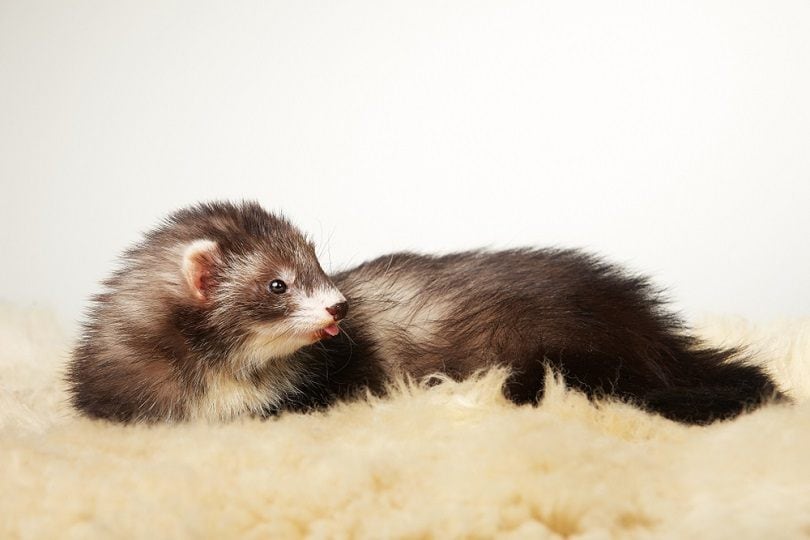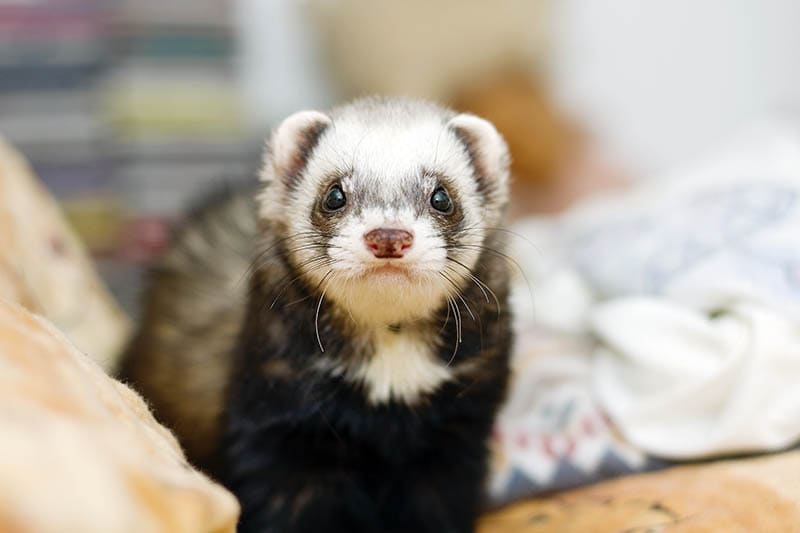Why Does My Ferret Stare at Me? Common Reasons & What to Do
By Jordyn Alger
Updated on
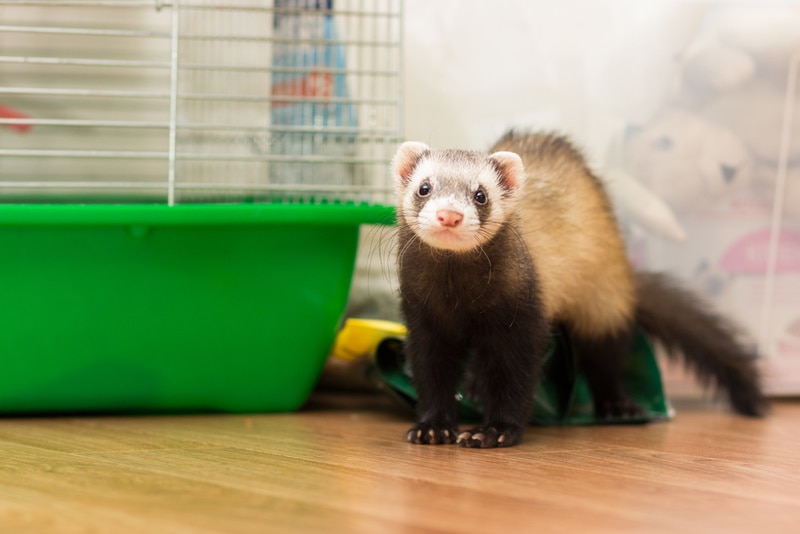
Click to Skip Ahead
Ferrets have peculiar quirks. The lively, playful creatures have habits that aren’t always easy to understand but can be explained. One behavior that many ferret owners have witnessed is a persistent stare from their pet. This behavior can be, at times, hilarious but is mostly confusing. If you find them staring at you, your ferret is most likely trying to communicate that they want something from you.
That is why this article will discuss the reasons why your ferret stares at you. Furthermore, we will talk about other nonverbal communication methods that your ferret uses and how to interpret them.
Why Do Ferrets Stare?
Catching your ferret staring can be startling at times. After all, an unyielding stare can be interpreted as aggression. But when it comes to your ferret, aggression is likely the furthest thought from their mind.
Most of the time, ferrets stare at their owners because they want something. When your ferret locks their gaze on you, they are trying to communicate that they want something from you. Determining exactly what they are asking for is up to you.
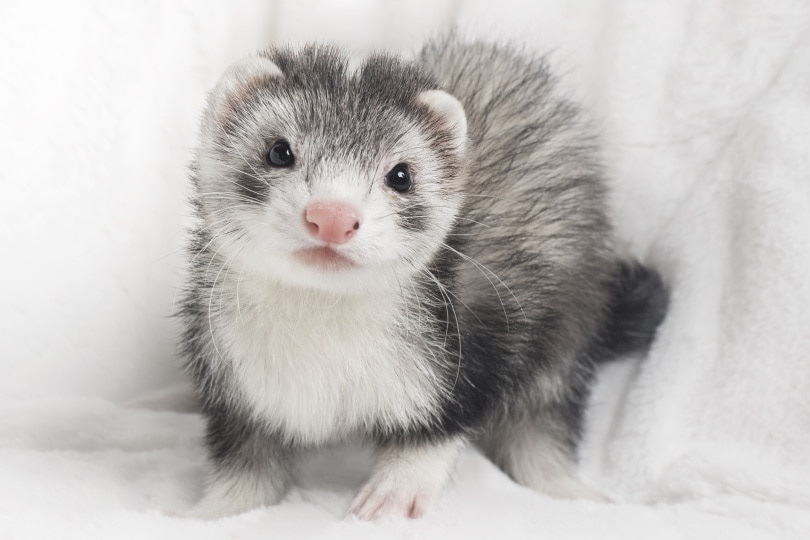
How to Know What Your Ferret Wants
Since ferrets don’t speak our language, deciphering what they want can be a challenge. Considering the context of the situation will help you to understand what your ferret is asking for. For instance, if you are standing near the pantry where your ferret’s treats are kept, you can assume that they are asking for a snack.
If they are inside of their cage and pressed close to the door, then they are likely asking to be let out. Observe your surroundings to make an educated guess regarding what your ferret wants.
Understanding Your Ferret’s Moods by Observing Body Language
Body language is the key to communicating with your pet. Your ferret’s body language indicates what mood they are in, and understanding the signals that they send will help you accommodate your pet better. The primary moods you can observe include happiness, excitement, fear or anxiety, and playfulness.
Happiness
Happy ferrets hold their heads high! They are eager to interact with you or other ferrets and may even hop around to express their delight.
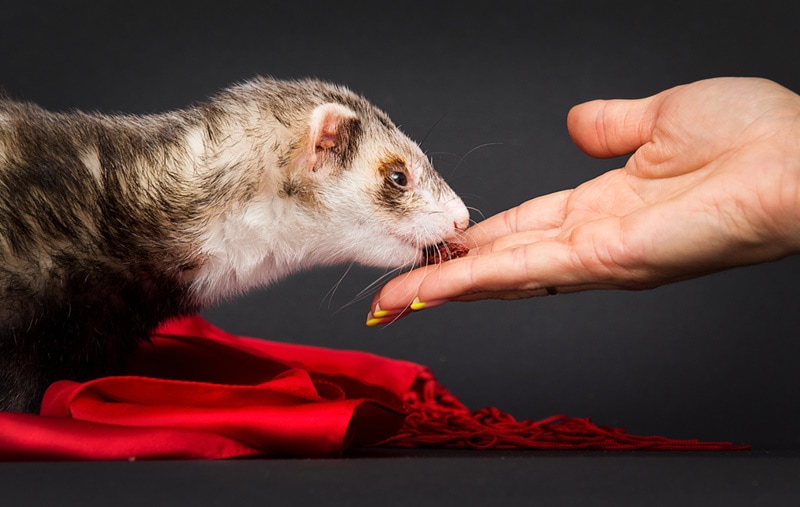
Excitement
Ferrets, with their interest piqued, will often hold their nose to the ground as they dart around the area and sniff everything in sight. This behavior is often accompanied by new stimuli, such as another pet entertaining the room or an unfamiliar guest.
Some ferrets may even make a “dooking” sound to express excitement. Extremely excited ferrets will make a “dooking” sound faster and louder than others. You may even notice your ferret swishing their tail back and forth, almost like a dog wagging their tail.
Fear or Anxiety
It isn’t too hard to tell when a ferret is afraid or anxious. Fearful ferrets will often cower and look over their shoulders at the stressor. They may hiss or make other unpleasant vocalizations to express their distress.
When the fear becomes too great, most ferrets run and hide. Some even shriek as they try to escape whatever is frightening them.
Playfulness
Ferrets are often mischievous, and they may show it in different ways when they want to play. One way your ferret shows they want to play is by racing up to you and then darting away, trying to tempt you to chase them. They may also resort to less pleasant behavior, such as nipping.
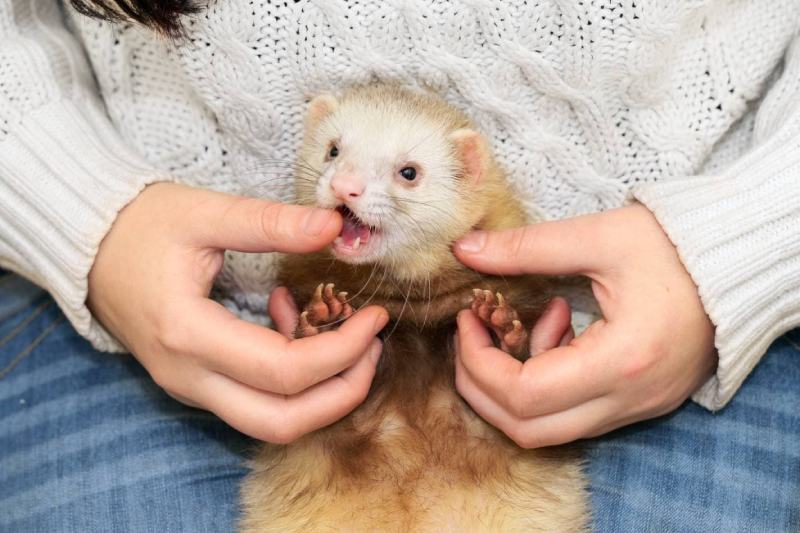
Understanding When Your Ferret Is Communicating Their Physical Needs
Moods aren’t the only feelings your ferret can communicate with body language; they can also signal feelings of hunger, thirst, or sickness.
Hunger or Thirst
Hungry or thirsty ferrets may linger around their empty dishes or play with them. You may notice your pet pushing the bowls around or digging at them. Another way your ferret may communicate their hunger or thirst is to stare at you.
As we mentioned before, ferrets who stare are often asking for something. If you notice your ferret staring at their dishes and then at you, there is a good chance they are asking for food and water!
Sickness
Like many animals, ferrets tend to hide when they are sick or in pain. Therefore, paying close attention to your pet’s body language may be the only way to tell if they are unwell.
Ill or injured ferrets squint their eyes and hunch their bodies. They tend to be less active, opting instead to sleep. If you notice signs that your ferret is unwell, make an appointment with your vet immediately. The sooner you diagnose an issue, the faster your ferret can receive treatment and feel better again.
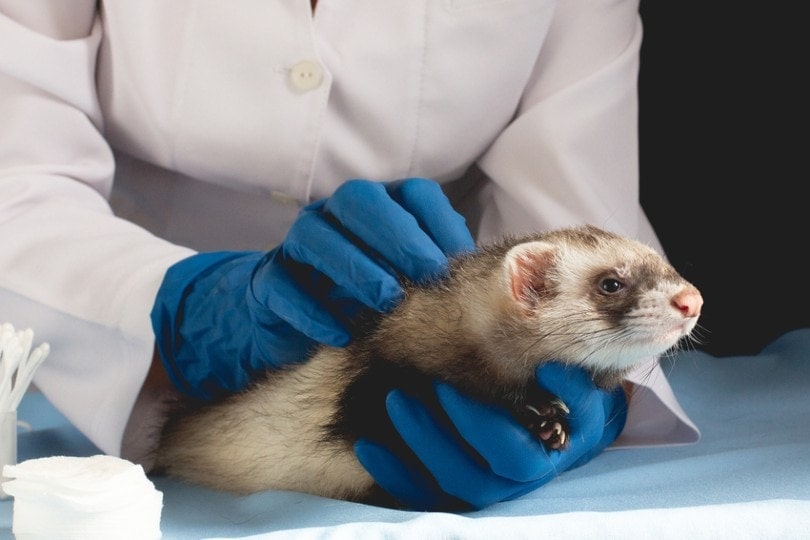
Conclusion
Your ferret is a fascinating creature; the better you can understand them, the stronger your bond will be. Reading their body language is a crucial first step towards deciphering your pet’s moods and needs. When a ferret stares at you, they are often communicating a desire for something. The more you get to know your ferret, the easier it will be to determine precisely what they are asking for.
See Also:
- Why Does My Ferret Bite My Feet? Common Reasons & What to Do
- Why Does My Ferret Lick Me? Possible Reasons
Featured Image Credit: Fayzulin Serg, Shutterstock

